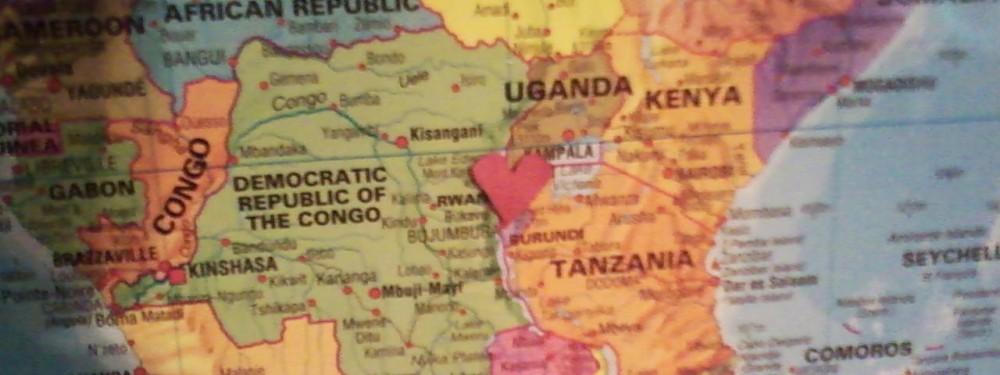The Peace Corps first began service in Rwanda in 1973, in the fields of education, agriculture, and health, until political and ethnic conflict in the country led to the evacuation of volunteers in 1994.
Fifteen years later, after significant reconstruction and a recommitment to healing, the Government of Rwanda asked the Peace Corps to return.
In 1998, Rwanda made a bold decision to switch the nation’s language of instruction from French to English for all secondary students. Peace Corps Volunteers would be instrumental in making this transition possible. Providing native English speakers to teach students as well as to train teachers in student-centered pedagogy in all sectors of education.
Today there are currently 102 Education and Public Health Volunteers serving in Rwanda. They are living in communities all across the small country known as the land of a thousand hills. They are teaching English and Computers, educating about malaria and HIV/AIDs prevention. They are learning Rwanda’s native language, Kinyarwanda, and becoming active partners in Rwanda’s pursuit of development and cross-cultural exchange.
In 2008, upon Peace Corps’ return, Rwandan President Paul Kagame gave the following speech to his country. His words echo the commitment and hope of every Peace Corps Volunteer who takes the oath to serve.
Paul Kagame
President of the Republic of Rwanda
“A Different Discussion about Aid”
The United States of America has just sent a small number of its sons and daughters as Peace Corps volunteers to serve as teachers and advisors in Rwanda. They have arrived to assist, and we appreciate that. We are aware that this comes against the backdrop of increasingly scarce resources, of budget discussions and campaign promises, and of tradeoffs between defense and domestic priorities like health care and infrastructure investments. All that said, I believe we need to have a different discussion concerning the potential for bilateral aid.
The Peace Corps have returned to our country after 15 years. They were evacuated in 1994 just a short time before Rwanda collapsed into a genocide that killed over one million people in three months. Things have improved a lot in recent years. There is peace and stability throughout the nation. We have a progressive constitution that is consensus-driven, provides for power sharing, embraces diversity, and promotes the participation of women, who now represent the majority in our parliament. Our economy grew by more than 11% last year, even as the world entered a recession. We have chosen high-end segments of the coffee and tea markets in which to compete, and attract the most demanding world travelers to our tourism experiences. This has enabled us to increase wages by over 20% each year over the last eight years — sustained by, among other things, investment in education, health and ICT.
We view the return of the Peace Corps as a significant event in Rwanda’s recovery. These young men and women represent what is good about America; I have met former volunteers who have run major aid programs here, invested in our businesses, and I even count them among my friends and close advisors.
Peace Corps volunteers are well educated, optimistic, and keen to assist us as we continue to rebuild, but one must also recognize that we have much to offer them as well.
We will, for instance, show them our system of community justice, called Gacaca, where we integrated our need for nationwide reconciliation with our ancient tradition of clemency, and where violators are allowed to reassume their lives by proclaiming their crimes to their neighbors, and asking for forgiveness. We will present to them Rwanda’s unique form of absolution, where the individuals who once exacted such harm on their neighbors and ran across national borders to hide from justice are being invited back to resume their farms and homes to live peacefully with those same families.
We will show your sons and daughters our civic tradition of Umuganda, where one day a month, citizens, including myself, congregate in the fields to weed, clean our streets, and build homes for the needy.
We will teach your children to prepare and enjoy our foods and speak our language. We will invite them to our weddings and funerals, and out into the communities to observe our traditions. We will teach them that in Africa, family is a broad and all-encompassing concept, and that an entire generation treats the next as its own children.
And we will have discussions in the restaurants, and debates in our staff rooms and classrooms where we will learn from one another: What is the nature of prosperity” Is it subsoil assets, location and sunshine, or is it based on human initiative, the productivity of our firms, the foresight of our entrepreneurs? What is a cohesive society, and how can we strengthen it? How can we improve tolerance and build a common vision between people who perceive differences in one another, increase civic engagement, interpersonal trust, and self-esteem? How does a nation recognize and develop the leaders of future generations? What is the relationship between humans and the earth? And how are we to meet our needs while revering the earth as the womb of humankind? These are the questions of our time.
While some consider development mostly in terms of infusion of capital, budgets and head counts, we in Rwanda place equal importance to relationships between peoples who have a passion to learn from one another, preparing the next generation of teachers, administrators and CEOs to see the exchange of values and ideas as the way to build the competencies of our people, and to create a prosperous nation.
We will do this because we see that the only investment with the possibility of infinite returns is in our children, and because after a couple of years in Rwanda, working and learning with our people, these Peace Corps volunteers will be our sons and daughters, too.
